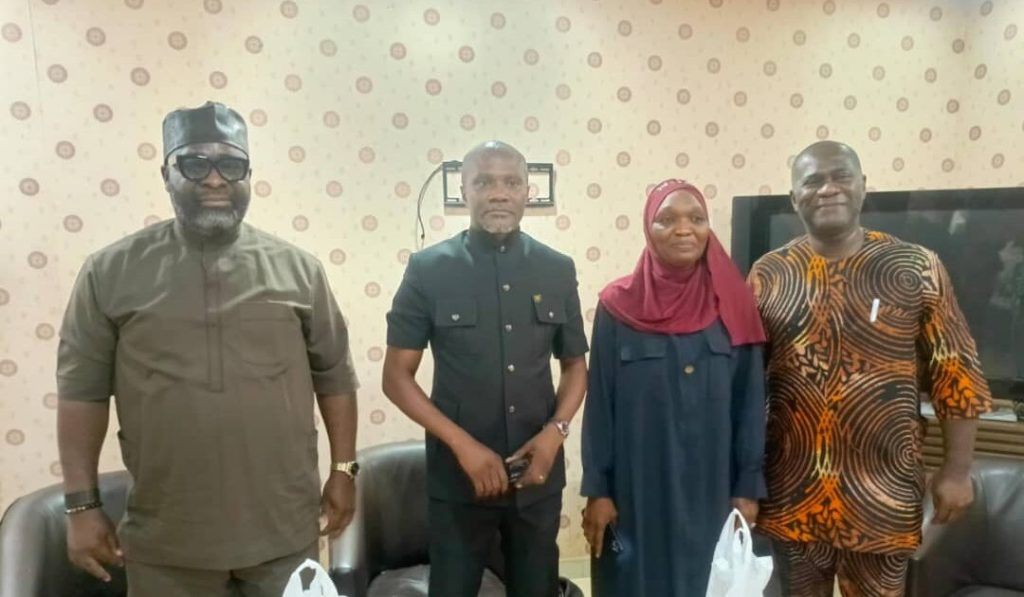The tragic killing of Mohammed Sulaimo, a newly appointed Regional Manager at Union Bank Plc, has sparked outrage and calls for accountability from the Federal Government College Kaduna Old Students Association (FEGOKOSA). Sulaimo, an alumnus of the prestigious institution, was ambushed and shot dead by unknown gunmen on August 4, 2025, while traveling on official duty along the notoriously dangerous Kaduna-Katsina highway. The incident has cast a harsh light on Nigeria’s escalating security crisis and raised serious questions about the duty of care owed by corporations to their employees operating in high-risk environments. FEGOKOSA has vehemently criticized Union Bank for what they deem a lack of adequate security provisions for Sulaimo, who had only been in his new role for three weeks, and for their perceived silence in the aftermath of the tragedy.
The circumstances surrounding Sulaimo’s death are shrouded in inconsistencies and raise suspicions. Traveling with only his driver, he was reportedly ambushed, with the driver escaping into the bush. Sulaimo himself sought refuge near a mosque, where he was later found by soldiers and taken to a hospital, only to succumb to his injuries the following day. Conflicting reports regarding the number of gunshot wounds and the disappearance of personal items like his phone and ATM card have fueled the family’s suspicion that the official narrative may not fully capture the events of that fateful day. His widow, Mrs. Talatu Suleiman, with whom he shared 27 years of marriage and five children, has expressed disbelief and anguish, grappling with the sudden loss of a devoted husband and father. She has pleaded with the government to take decisive action against the rampant kidnappings and armed violence plaguing the nation, hoping to prevent other families from experiencing similar tragedies.
FEGOKOSA has taken up the mantle of advocating for justice and accountability in Sulaimo’s case. They have publicly questioned why a senior executive was traveling through a known danger zone with minimal security, lacking even basic precautions such as an escort or a bulletproof vehicle. Their global president, Seyi Gambo, has framed Sulaimo’s death not as an isolated incident but as a symptom of a broader national security failure, urging the government and security agencies to address the unchecked operations of criminal gangs across the country. The association has also called on Union Bank to conduct a thorough investigation into the incident and to provide adequate support to Sulaimo’s bereaved family, emphasizing the financial and emotional burdens faced by Mrs. Suleiman and her five children, who are now without their primary provider.
The killing of Sulaimo resonates beyond the immediate tragedy, touching upon larger issues of national security, corporate responsibility, and the impact of violence on Nigerian society. Uchenna Nnoli, a member of the Leadership Committee of Unity Schools Old Students Association, has highlighted the chilling effect of such incidents on education, business, and national unity. The fact that a high-profile professional, a product of Nigeria’s public education system, could be so easily targeted underscores the vulnerability of all citizens and the urgent need for improved security measures. He has also drawn attention to alarming statistics on violent killings and displacement in Nigeria, citing UN data that paints a bleak picture of a nation grappling with escalating insecurity.
The alumni association has advocated for specific measures to address the security challenges, including the establishment of state police forces, arguing that localized security agencies would be more effective in responding to the unique threats faced by different regions. They have also called on President Bola Tinubu to prioritize the state police bill in the National Assembly, emphasizing the need for a more robust and nuanced security apparatus. FEGOKOSA has committed to keeping the issue in the public spotlight, demanding justice for Sulaimo and urging Union Bank to implement better safety protocols for its employees, particularly those deployed in high-risk areas.
Furthermore, FEGOKOSA has criticized Union Bank’s perceived silence and inaction in response to the tragedy. Wale William, an executive member of the association, expressed disappointment at the bank’s failure to publicly acknowledge Sulaimo’s death or to offer reassurances to its employees about their safety. He questioned why an organization of Union Bank’s stature had not issued a media statement expressing condolences, honoring Sulaimo’s service, or outlining measures to enhance security for its staff. This perceived lack of corporate responsibility has further fueled the association’s outrage and strengthened their resolve to hold the bank accountable for its perceived failings. They believe that Sulaimo’s death should serve as a wake-up call for corporations operating in Nigeria to prioritize the safety and well-being of their employees and to demonstrate a more visible commitment to their duty of care.


